Improving Communication in Relationships: “The Four Horseman”

You can personalize the Improving Communication in Relationships: “The Four Horseman” resource by downloading it HERE, and adding your own responses, or continue to view it below.
While no relationship is perfect, it’s important to know how to navigate difficult conversations and situations. By recognizing and avoiding four specific types of negative interactions (dubbed the 'Four Horsemen of the Apocalypse' by Dr. John Gottman and Dr. Julia Schwartz Gottman), we can be better prepared to communicate fairly and effectively. This worksheet is designed to help us identify when negative or hostile language is being used in a relationship and suggests how to create productive discussions for you and your partner – or multiple partners in polyamorous relationships.
Criticism

To criticize in relationships is to focus on the perceived flaws of our partner. Criticism is often centered around the word “you”, and leads to the feeling of being attacked or shamed. The Gottman’s refer to this as a “character assassination”.
Criticism can look like:
- name-calling
- placing blame
- attacking an individual’s character, or who they are as a person
Criticism may not always seem harmful, but can often leave the other person feeling as if they need to defend themselves.
As an alternative to criticism, try:
- a soft approach to ease into a conversation
- expressing what we feel and what we would have preferred our partner to say or do
- showing appreciation for what our partner is doing right
- being kind when having difficult conversations
- using “I” statements to avoid placing blame
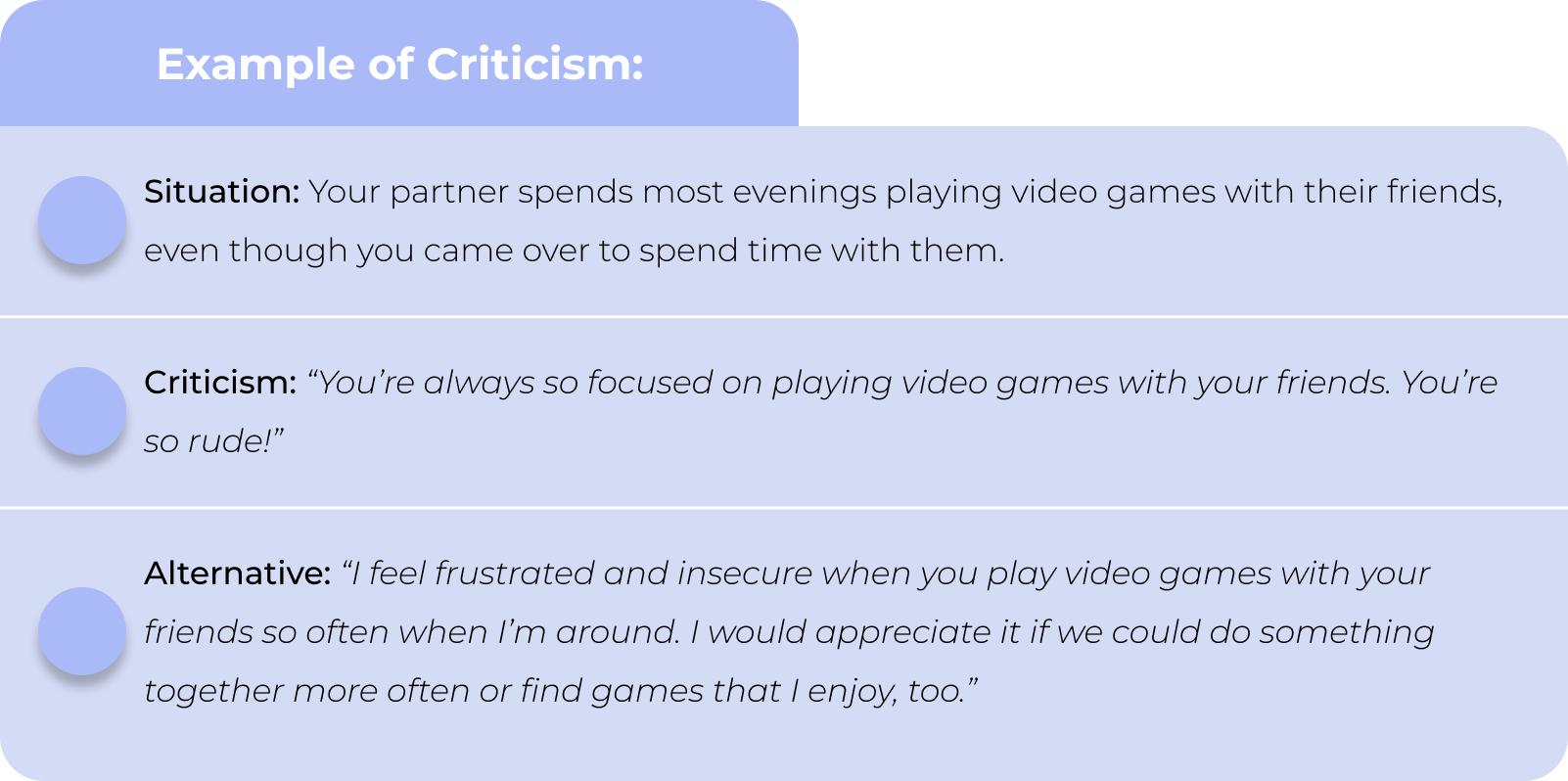
Your turn! Think of a time that you have criticized your partner and use the space below to explore alternatives. When using any of the following “practice” sections, it can be helpful to start with situations that are less emotionally charged.
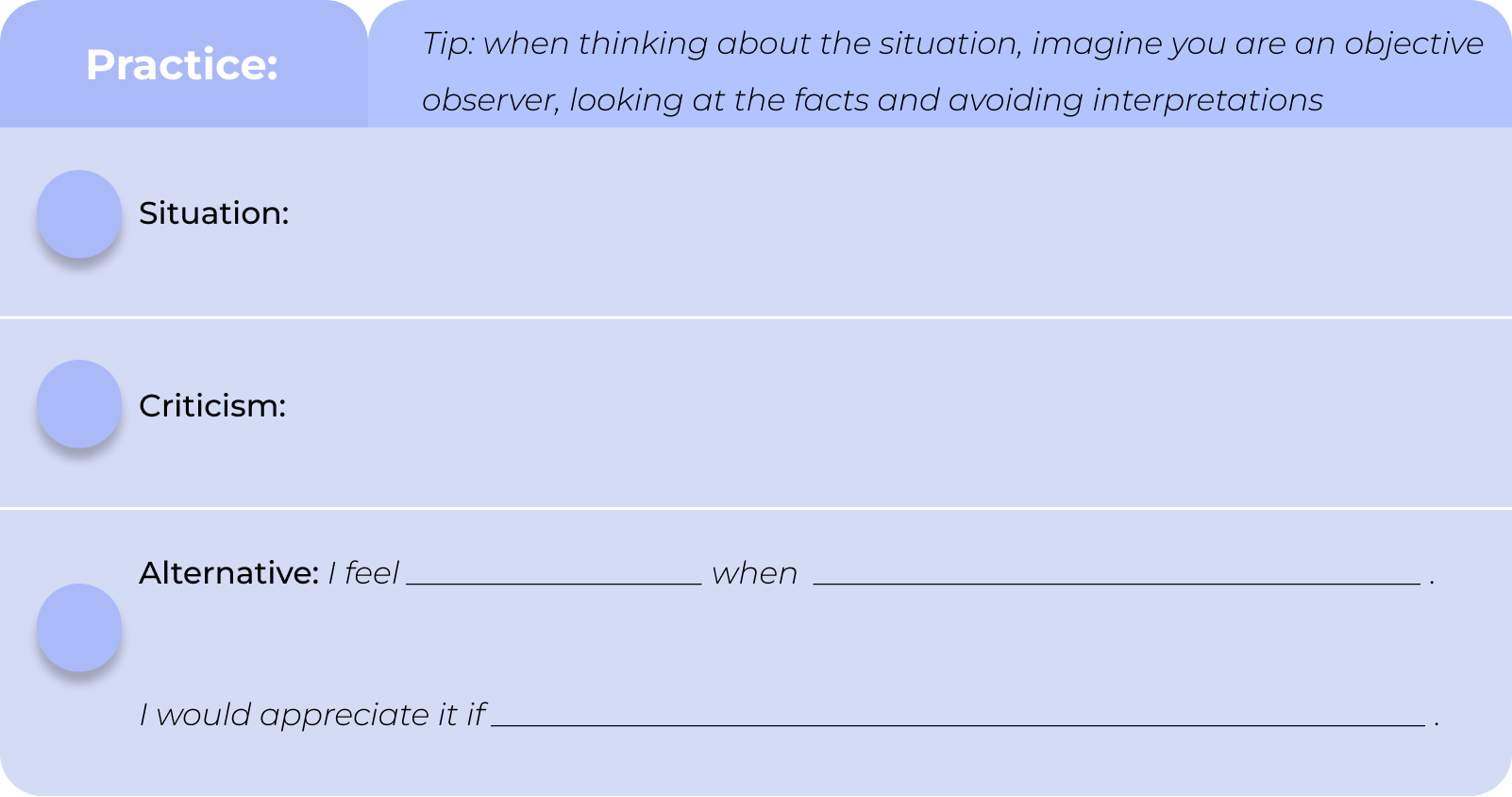
Defensiveness

Defensiveness typically appears as a result of being criticized, as the individual feels like they need to support their criticized actions.
Defensiveness can look like:
- starting a counter-argument
- claiming there wasn’t another alternative
- acting as a victim in the situation, to avoid responsibility
Defensive reactions to criticism can be destructive, further escalate arguments, and rarely lead to a solution.
As an alternative to defensiveness, try:
- taking responsibility for some of what is being shared with you
- to avoid using “if” or “but” during these conversations as it can contradict what we’re saying and taking responsibility for
- offering an apology for your part in the conflict
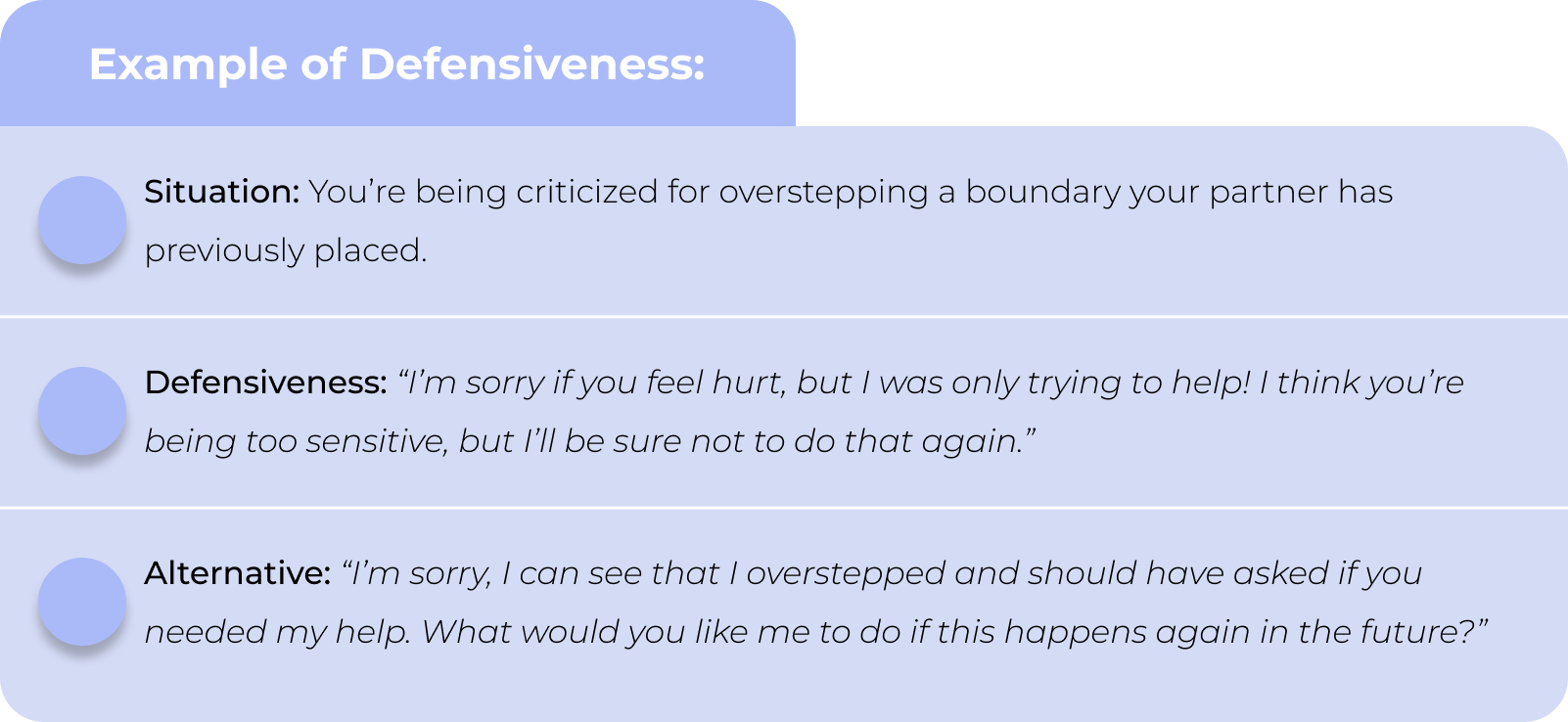
Your turn! Think of a time that you were defensive towards your partner and use the space below to explore alternatives.
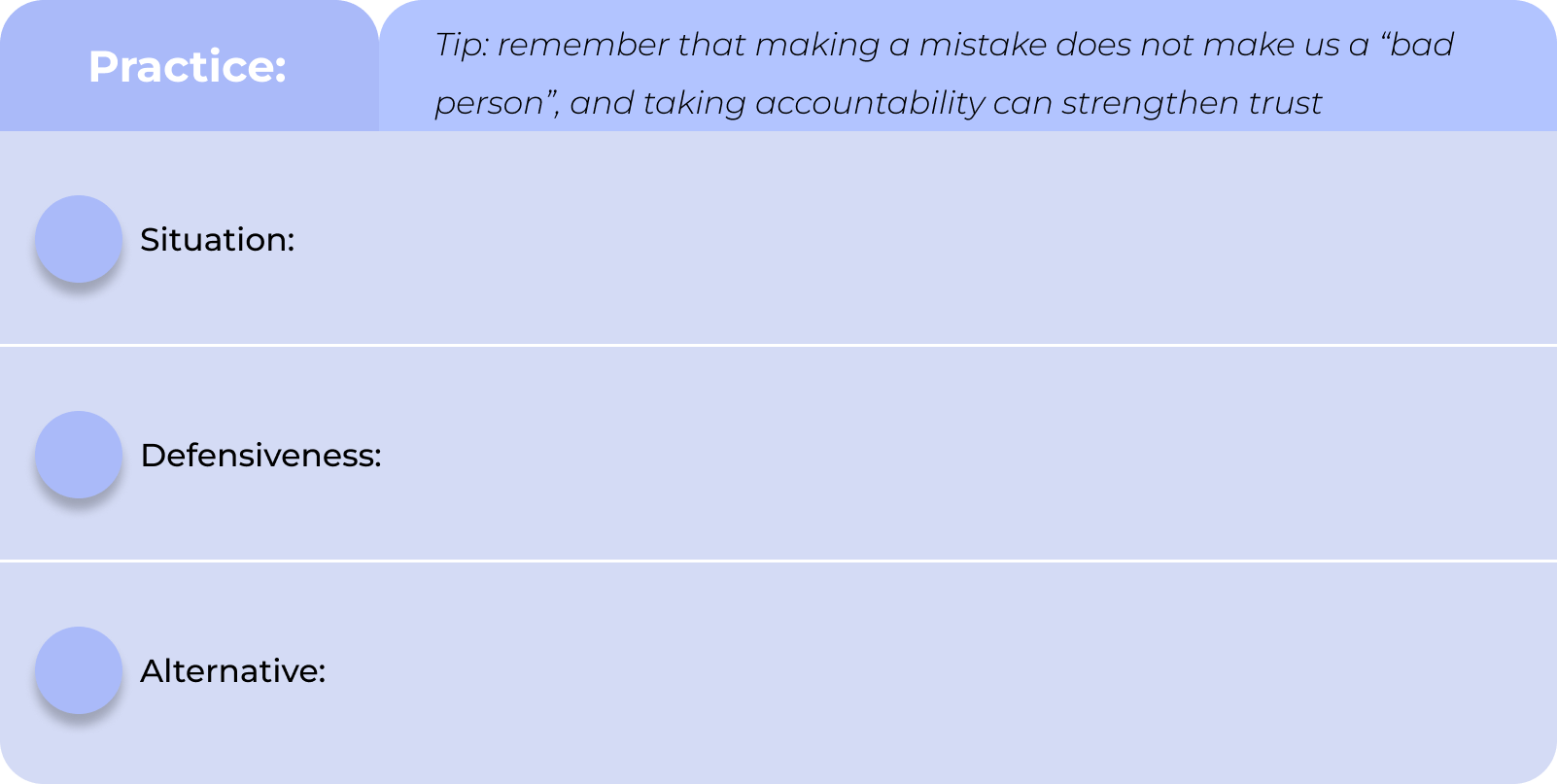
Contempt

When someone is contemptuous, they put themself on a pedestal and actively feel as if they are superior or have authority over others. When we do this, it shows others we have a distaste for them or their actions, which can often lead to more conflict.
Contempt can look like:
- eye-rolling
- cynicism
- or negative beliefs about the other person
- name-calling
- mocking the other person
- hostile or antagonistic behavior
Contempt creates challenges in any relationship, because it shows that we prefer to point out someone’s flaws rather than the things we enjoy about them. And furthermore, it prevents discussions that can lead to solutions.
Similarly to criticism, we can avoid contempt by:
- practicing “I” statements to express what we feel and need
- showing appreciation–it can be helpful to focus on the admiration, gratitude, and fondness we have for our partner
- communicating what we want to resolve, rather than attacking
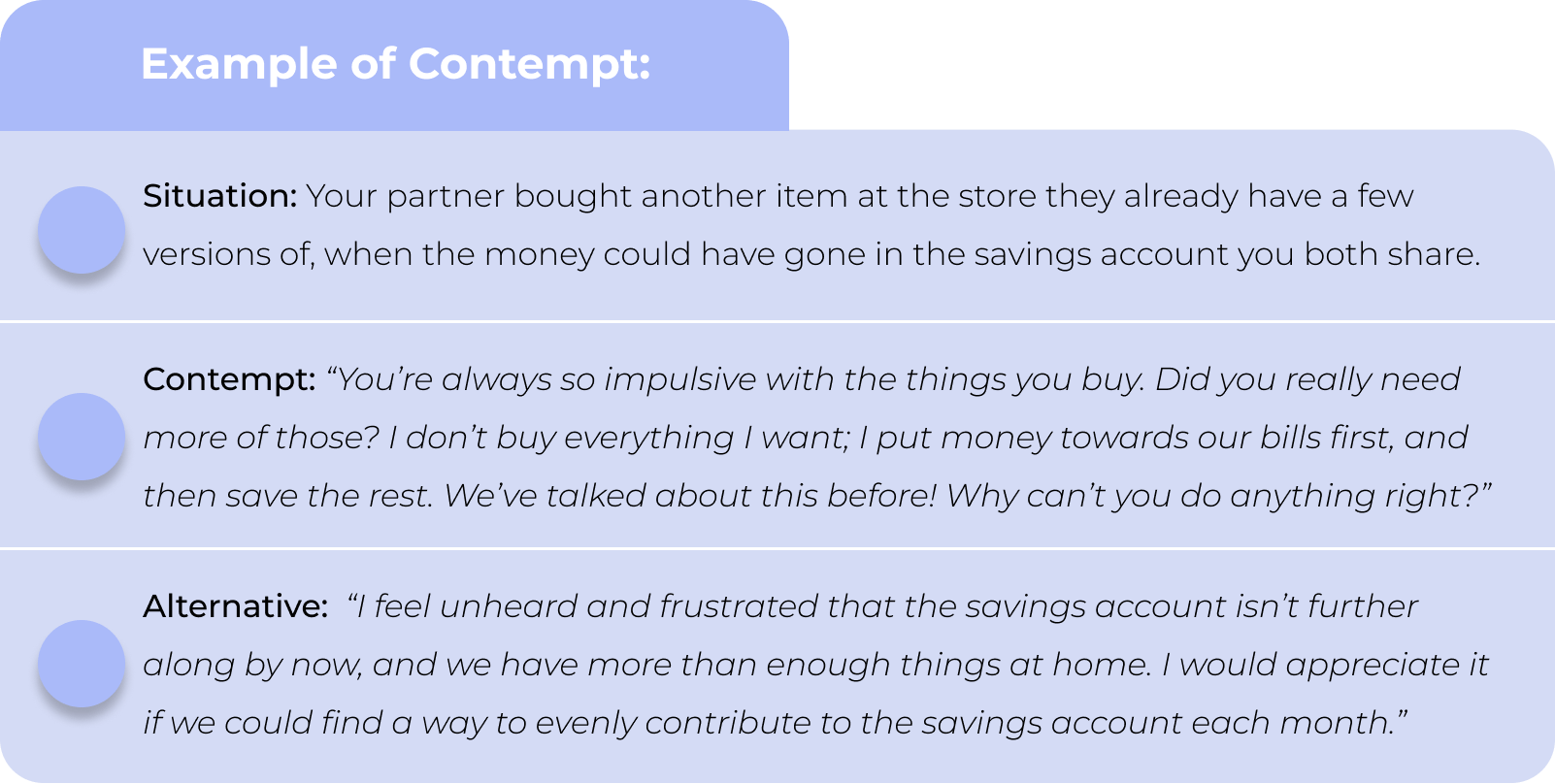
Your turn! Think of a time that you had contempt towards your partner and use the space below to explore alternatives.
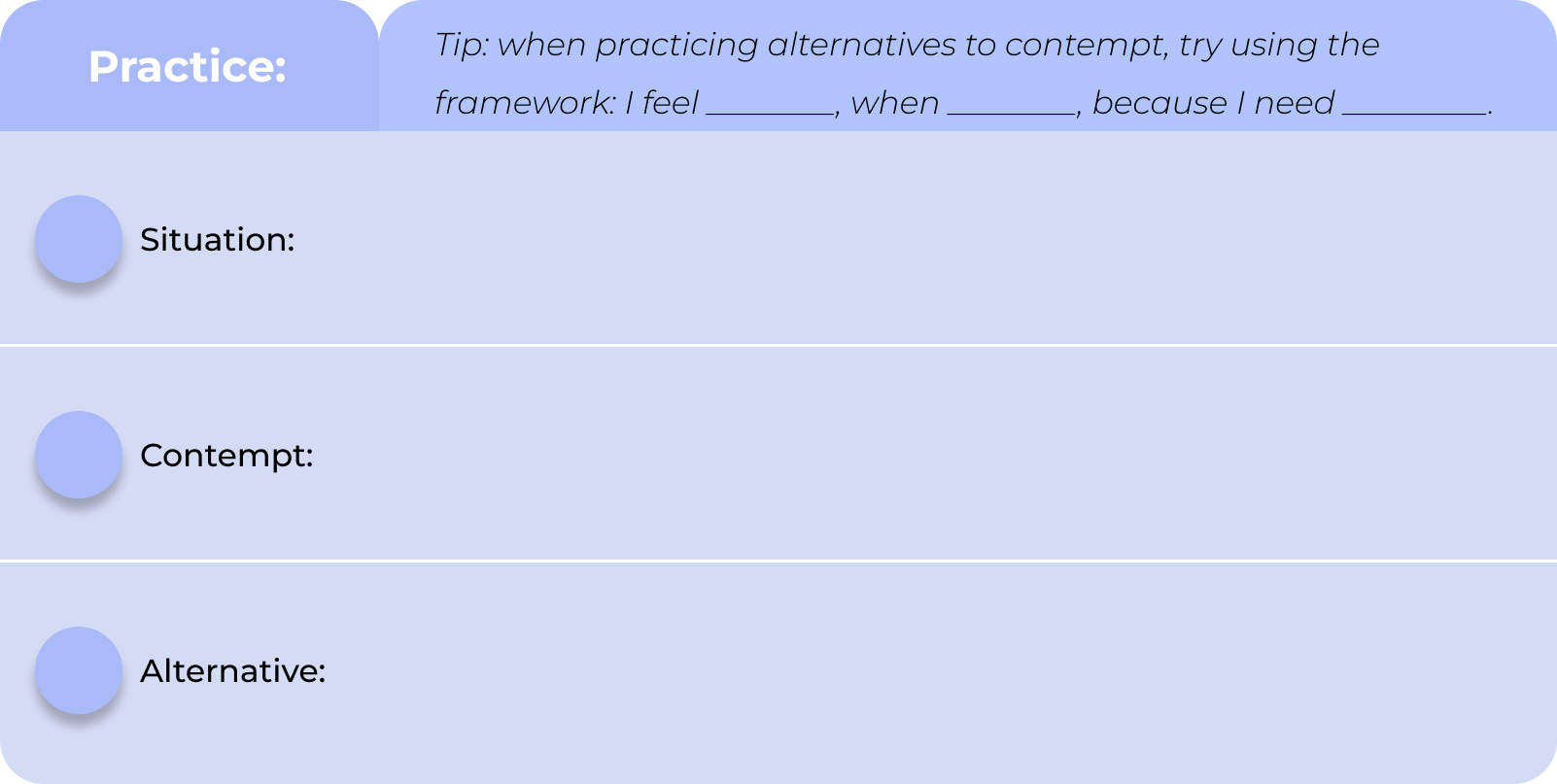
Stonewalling
Stonewalling happens when we are physically present during an interaction, but also show signs that we are withdrawn from the conversation and no longer listening.
Stonewalling can look like:
- crossing our arms
- avoiding eye contact
- starting to do other tasks at the same time
- staying silent, aka “the silent treatment”
Stonewalling tends to show our partner that we’re disinterested in what they’re saying, making them feel as if their point is not being heard or doesn’t matter.

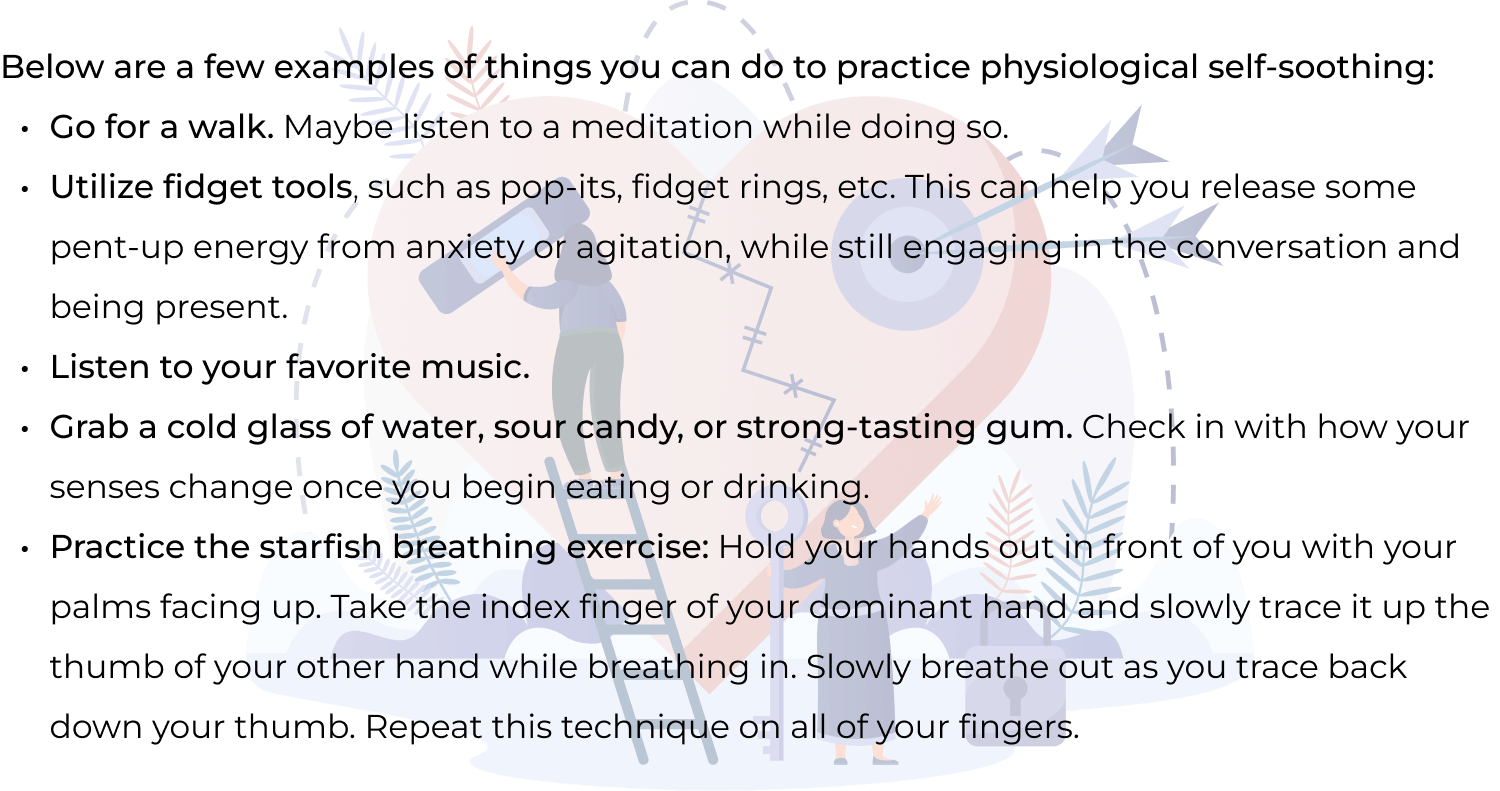
Additional Resources
DBT: Distress Tolerance Skills
DBT: Interpersonal Effectiveness
DBT Skills: Opposite Action
DBT Skills: Soothing Anxiety
DBT Skills: TIPP for Emotional Crisis
Everyday Mindfulness
Finding Unity
Mindfulness Basics
Self-Soothing Activities
References
Gottman, J. H. & Gottman, J. S. (2017). Avoid the four horsemen for better relationships. The
Gottman Institute. https://pbrcoaching.com.au/wp-content/uploads/2019/08/Avoid-the-Four-Horsemen_2017.pdf
Call 911 if you’re having a
mental health emergency
Text Home to 741-741 if you're in emotional
distress and need immediate support
Call or text 988 Suicide &
Crisis Lifeline. Chat service
is available at 988lifeline.org.